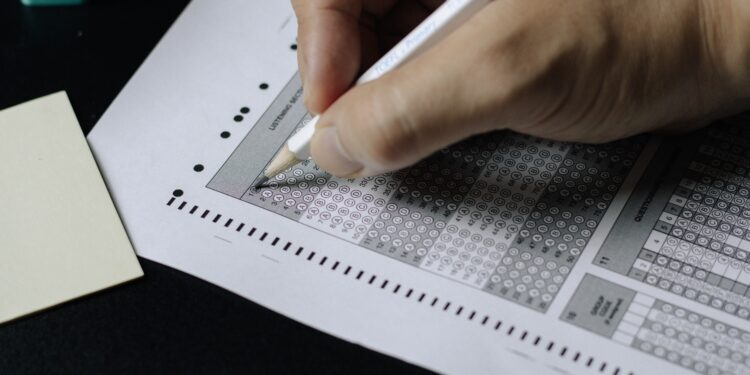We’re studying implicit bias on the MCAT!
The Medical College Admission Test (MCAT) is a standardized exam that aspiring medical students must take in order to gain admission into medical schools. Recent studies have highlighted the presence of implicit bias and racial inequities within the MCAT exam.
Implicit bias refers to the unconscious biases or stereotypes that individuals hold towards certain groups of people. These biases can impact subconscious decision-making processes, resulting in unequal treatment or evaluation of individuals based on their race or ethnicity. In the context of the MCAT exam, implicit bias can lead to disparities in test performance and outcomes for different racial and ethnic groups, particularly in the form of differential item functioning (DIF) and differential test functioning (DTF).
DIF occurs when distinct groups of test-takers, despite having the same level of ability, perform differently on specific test items. This suggests that certain items within the MCAT exam may be inherently biased or more difficult for certain racial or ethnic groups. For example, research has indicated that Black and Hispanic students tend to score lower on MCAT items that require cultural knowledge or experiences that may be more prevalent in White or Asian communities.
DTF refers to differences in test performance across different racial or ethnic groups, even when controlling for ability or knowledge. This suggests that the MCAT exam, as a whole, may disadvantage certain groups, leading to lower average scores and reduced chances of admission for those individuals. This can perpetuate racial inequities within the medical field, where diversity is essential for addressing healthcare disparities and providing culturally competent care to all patients.
It is essential to address and mitigate implicit biases within the MCAT exam to ensure fairness and equal opportunities for all aspiring medical students. This can be achieved through test development practices that prioritize cultural sensitivity and inclusivity, as well as the implementation of bias-aware scoring procedures.
The AAMC and medical schools throughout the country must take a proactive approach in promoting diversity and inclusivity within their student bodies. This begins by reevaluating admissions criteria and considering how the MCAT exam, as it is designed, factors in the admissions process and serves as an indicator of potential success in medical school.
The presence of implicit bias and racial inequities in the MCAT exam is a pressing issue that needs to be addressed. By acknowledging and rectifying biases within the exam and implementing holistic admissions practices, we can work towards a more inclusive and equitable medical education system. Ultimately, this will foster a healthcare workforce that better reflects the demographics of our diverse society, which studies have shown improve health outcomes for all patients.
Daily Remedy is pro-actively leading this initiative by structuring a course that measures the extent to which students studying for the MCAT exam are affected by and notice implicit biases in the MCAT exam.
Students will be screened based on their level of formal education and the duration they have been studying for the MCAT. We welcome students at all stages of their academic journey and at various points in their MCAT preparation. It is critical to evaluate the formation of biases among students across a diverse spectrum of education and test preparation.
The course would last six weeks and study biases at various granular levels of test design. The MCAT is a diverse exam, consisting of multiple sections with each designed uniquely.
The unique framework of the exam can lead to different implicit biases and therefore should be studied in a systematic manner in order to cross reference which sections of the exam portend a greater potential for biases.
For each section, we will evaluate a sample of questions to learn how the syntax structure of the sentences in the questions can create biases.
Then we will analyze how the sequence of questions, whether as part of a broader passage or designed as a discrete set of questions independent of each other but connected sequentially, create its own set of biases.
It might appear odd that different biases can form within each question and across a group of questions. However, the MCAT exam is designed to have questions batched together. They categorize questions as either (1) discrete based or (2) passage based to indicate whether they are (1) to be answered with the material provided through the question itself or (2) to be answered in aggregate with one set of information.
We will measure implicit biases both quantitatively and through descriptive statistics with the most commonly used statistical methods that have been developed to detect DIF and DTF.
At the end of the course, students will have an opportunity to review their results and comment on them. We hope that through a retrospective review of their performance, students will become more aware of how implicit biases in the exam design affects their test performance.
The course will conclude with participating students writing a letter to the AAMC sharing their perspectives and offering suggestions for improvement in the exam design.
If you know any students who would be interested in participating, please share this article and ask them to contact us at: [email protected].
















